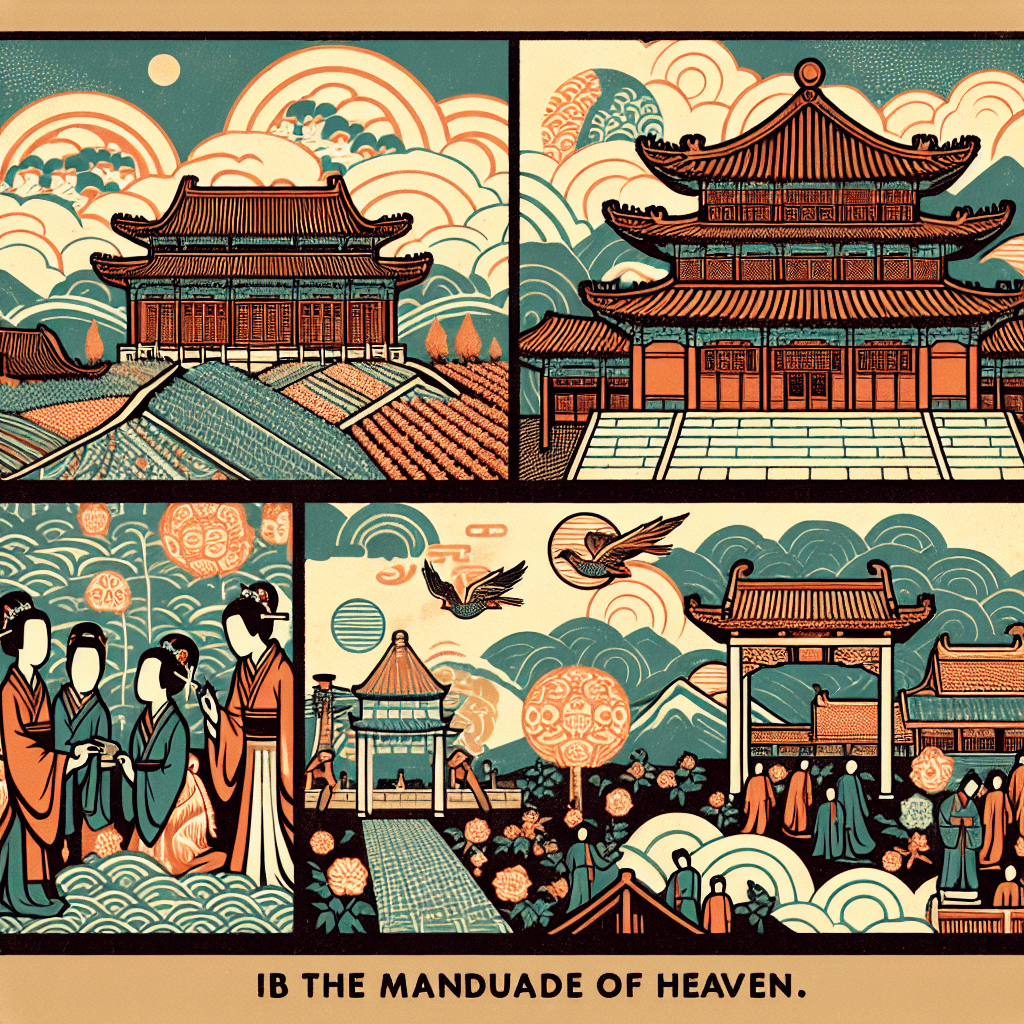

syndu | Feb. 20, 2025, 6:30 p.m.

The Mandate of Heaven, or Tianming (天命) in Chinese, is a foundational concept in Chinese political philosophy that has profoundly influenced the governance and legitimacy of rulers throughout China's history. During the Han Dynasty (206 BCE – 220 CE), this doctrine played a crucial role in maintaining cultural and political stability, providing a divine justification for the emperor's rule and reinforcing the dynasty's authority. This blog post explores how the Mandate of Heaven affected the Han Dynasty's stability, highlighting its impact on Chinese history and political thought.
The Han Dynasty emerged following the collapse of the short-lived Qin Dynasty, which had unified China but failed to maintain its grip on power due to harsh policies and widespread unrest. The Han rulers, led by Liu Bang (later Emperor Gaozu), sought to establish a more enduring and stable regime by invoking the Mandate of Heaven. By claiming that the Qin had lost the Mandate due to their tyrannical rule, the Han positioned themselves as the rightful successors, chosen by Heaven to restore order and harmony to the realm.
The Mandate of Heaven provided the Han with a powerful ideological tool to legitimize their rule and consolidate power. By asserting that they had been divinely chosen to govern, the Han emperors reinforced their authority and established a sense of continuity with the past, linking their reign to the moral and ethical principles that underpinned the Mandate.
Under the Mandate of Heaven, the Han Dynasty implemented a series of reforms aimed at promoting cultural and political stability. These reforms included the establishment of a centralized bureaucratic system, the promotion of Confucianism as the state ideology, and the development of a merit-based civil service. By aligning their governance with Confucian principles, the Han emperors emphasized the importance of moral integrity, ethical leadership, and the welfare of the people.
The Mandate of Heaven also influenced the Han's approach to governance, emphasizing the ruler's responsibility to maintain harmony and order within the realm.
This responsibility extended to the emperor's officials, who were expected to uphold the principles of the Mandate in their administration. By fostering a culture of accountability and ethical governance, the Han Dynasty was able to maintain political stability and ensure the prosperity of the state.
The Han Dynasty's use of the Mandate of Heaven to justify their rule had a lasting impact on Chinese history and political thought. By successfully maintaining cultural and political stability, the Han set a precedent for future dynasties, who would continue to invoke the Mandate as a source of legitimacy and authority.
The Mandate of Heaven also reinforced the cyclical view of history that characterizes Chinese political thought. According to this view, dynasties rise and fall based on their adherence to moral principles and their ability to maintain order and harmony. The Han's invocation of the Mandate underscored the idea that rulers must govern justly and effectively to retain the divine right to rule.
The Mandate of Heaven played a crucial role in the Han Dynasty's cultural and political stability, providing a divine justification for their rule and reinforcing their authority. By invoking the Mandate, the Han were able to legitimize their governance and implement reforms that laid the foundation for a stable and prosperous Chinese state.
As we explore the influence of the Mandate of Heaven on the Han Dynasty's stability, we gain a deeper understanding of its enduring significance in Chinese history and political thought. This doctrine serves as a testament to the power of ideas to shape societies and guide the course of history, reminding us of the timeless principles of moral governance and the ruler's responsibility to the people.